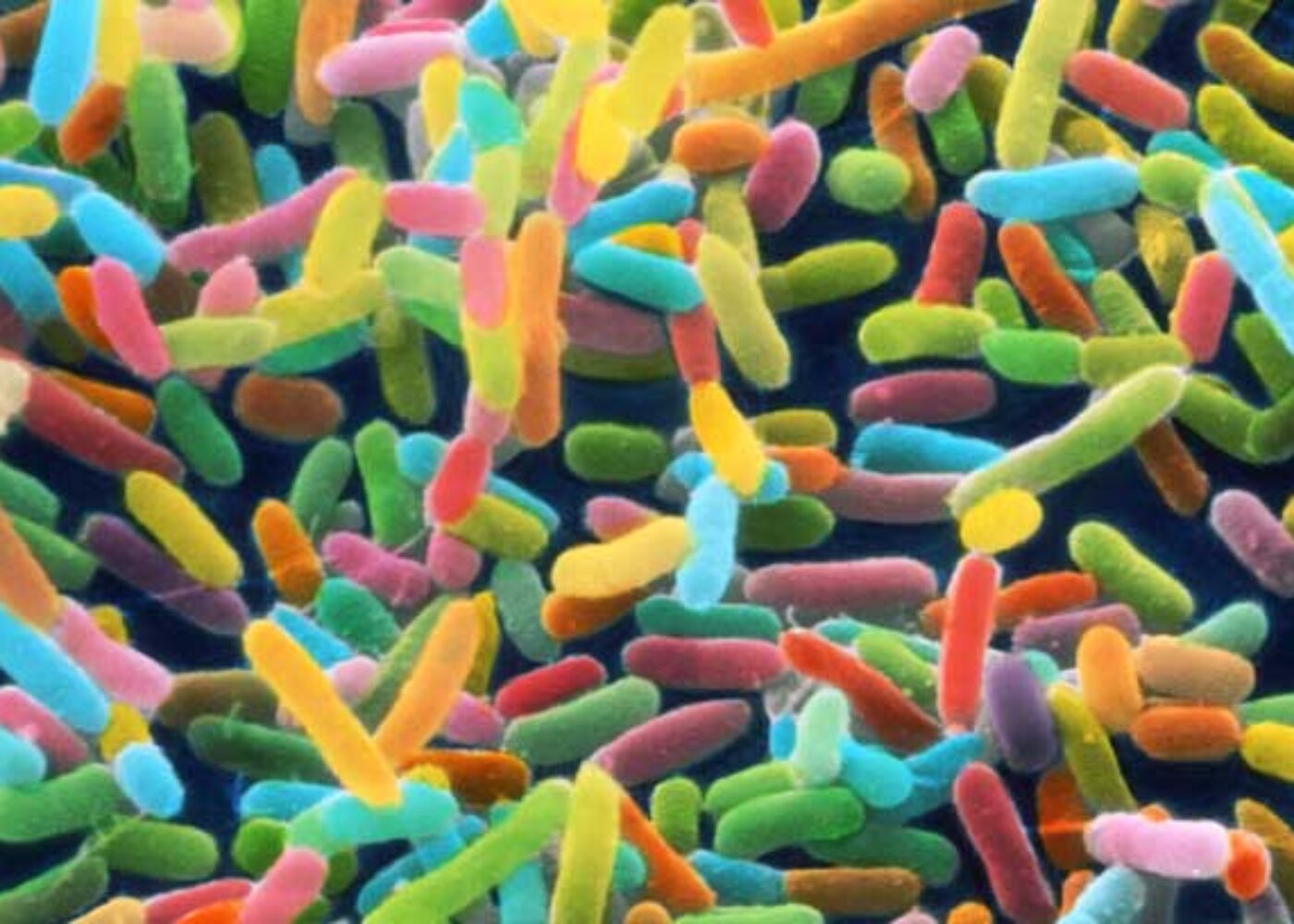17 Ways to Keep Your Belly Blissful and Protect Your Microbiome

Inside your belly is a thriving bacterial world, an eco-system commonly known as the ‘microbiome.’ It’s filled with bacteria—trillions of them, in fact—all going about their daily business of keeping you well. Without you’re being aware of it, they’re busily breaking down food; extracting nutrients; producing vitamins and brain chemicals; fending off microbial invaders; protecting you from disease; and performing hundreds of tasks essential to keeping your systems functioning optimally.
Problem is, few of us reach adulthood with our microbiome in the best of shape—it’s picked up a few dents and dings along the way, from gut-busters like drugs and antibiotics, junk food, GMOs, conventionally or factory farmed meats and other assaults on our inner ecology.
All of the things that impair our microbiome disrupt gut health as well. We’ve come to think of digestive symptoms as normal—doesn’t “everyone” have a bit of gas or bloating?—but, in fact, these symptoms can be the first signs of a microbiome that’s gone off the rails. A damaged microbiome can’t nourish the gut wall. The result—increased intestinal permeability or “leaky gut, ” —in which the one-cell thick, tightly woven net of cells lining the gut loosen, creating spaces that allow bacteria, toxins and pieces of the partially digested food to “leak” through. This ‘prison break’ triggers system-wide inflammation that can produce symptoms almost anywhere in the body.
In my book, repairing a leaky gut and protecting your microbiome, is one of the most important things you can do to sustain health. Fortunately, there are a number of ways to do it—and here’s where to start:
1. Avoid Genetically Modified Organisms (GMOs) Whenever Possible
Why? Because we simply don’t know enough about what negative impact they may have on our bodies in the long-term. To find out which genetically modified foods to avoid, see the Non-GMO Project’s list.
2. Avoid Sweet and Starchy Foods
They feed the bad bacteria in your gut causing overgrowth that overwhelms the good bacteria and upsetting the bacterial balance, which in turn effects how well your microbiome functions.
3. Avoid Junk Food and Processed Foods
These “foods” have been altered and modified and are detrimental to the microbiome—they contain trans fats, additives, preservatives, GMO corn, GMO soy or industrial seed oils.
4. Avoid Preservatives and Artificial Ingredients
Lousy for your body, lousy for your microbiome. ‘Nuff said!
5. Avoid Gluten
This is a compound protein found in wheat, rye, barley, and some other grains, as well as in soy sauce, seitan, beer, and many packaged and processed foods. For many people, gluten is irritating to the gut, triggering the immune system to fight back by launching an inflammatory response.
6. Avoid Conventionally Farmed Meat, Poultry, Dairy Products, and Eggs
The majority of them contain antibiotics and hormones, and the animals were likely raised on genetically modified corn or soy feed, none of which support the health of your microbiome.
7. Avoid Pharmaceutical Antibiotics (if Possible)
We do sometimes need them, but pharmaceutical antibiotics kill indiscriminately, wiping out bacteria, both good and bad. Use herbal “antibiotics” (anti-microbial herbs) whenever possible, as they seem to kill the unfriendly bacteria while leaving the good guys alone.
8. Avoid Proton Pump Inhibitors (PPI’s)
Research has shown that people who regularly take these acid blocking drugs, (such as Nexium, Prevacid, Prilosec and Aciphex), have less microbial diversity, putting them at increased risk for infections.
9. Avoid Artificial Sweeteners
Not only do they disrupt your microbiome, but they also trigger cravings—setting off a vicious cycle for those trying to avoid sweets.
10. Add Fermented Foods to Your Diet
Incorporate regularly—a few servings a week of sauerkraut, kefir (fermented milk), kimchee (Korean fermented cabbage), or fermented vegetables. Fermented foods contain natural bacteria that also protect your microbiome.
11. Incorporate Prebiotics Into Your Diet
Prebiotics are foods that contain the fiber on which friendly bacteria feed, including tomatoes, garlic, onions, radishes, leeks, asparagus, and Jerusalem artichokes.
12. Eat the Stalks
These tough parts of veggies, like the stalks of broccoli, the bottoms of asparagus and the stringy bits of celery contain cellulose fibers, which the good bacteria feed on.
13. Buy Your Produce From a Farm Stand
Produce from a local farm (as opposed to a supermarket), probably has travelled a shorter distance and has more nutrients and dirt on it (and therefore bacteria).
14. Take a Daily Probiotic
This is a capsule or powder containing friendly bacteria that can replenish your own microbiome. Taking a probiotic is especially important if you are taking antibiotics.
15. Get a Water Filter
Although chlorination of municipal tap water may have been successful at eliminating water borne diseases, it is probably negatively affecting good bacteria too. Chlorine in tap water is known to kill microbes in soil. The chances are, its killing microbes in your gut too.
16. Move and Meditate!
Meditation and exercise are wonderfully healthy ways to help decompress and blow off steam, so gift your body with regular doses of both. Developing a yoga practice takes care of both.
17. Sleep Well!
Another essential habit: getting enough restorative sleep. Your gut, your body, and your brain need rest to repair and refresh themselves, so indulge in a regular 7-8 hour nightly session!
To read more on how to keep your microbiome on an even keel and support your gut health, check out 10 Tips for a Happy Healthy Belly.
Originally published at Dr. Frank Lipman.






